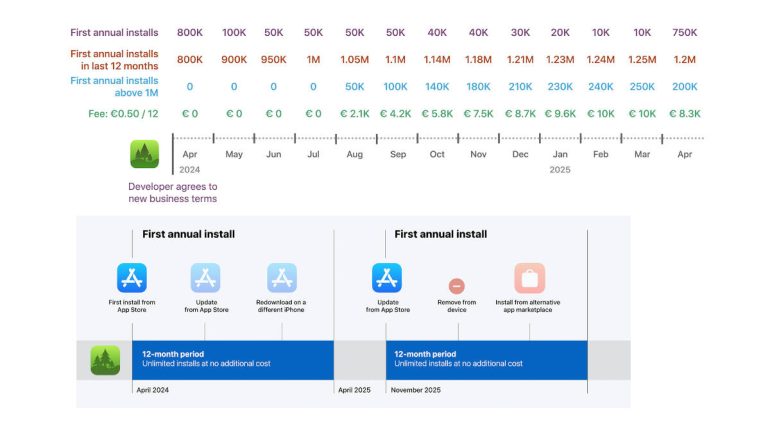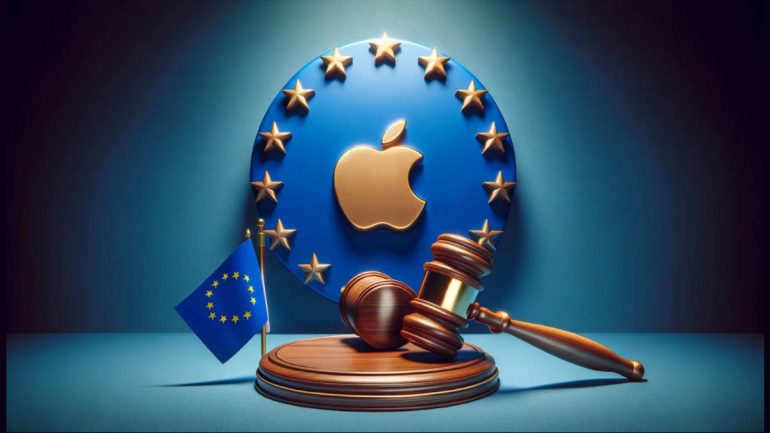The European Commission raised concerns regarding Apple’s recent rules for developers on selling apps on third-party stores or web downloads, because of potential violations of the Digital Markets Act (DMA).
What is the European Commission’s Problem with these New Terms?

So, what’s got the Commission’s attention? Well, it’s this new “Core Technology Fee” Apple’s floating – EUR 0.50 for each first annual install per year for apps hitting over 1 million downloads from third-party stores. It’s kinda steep.
Imagine your app goes viral, and instead of celebrating, you’re thinking about how to deal with Apple’s bill.
It’s Not Just Apple Though
However, Apple’s not the only one in the hot seat. The Commission is also eyeing Alphabet, Amazon, Meta, and Microsoft.
Think Alphabet boosting Google‘s services in search results or Meta‘s “pay or consent” model with Facebook and Instagram. Even Amazon is allegedly nudging its products ahead of the competition.
To be clear, these are just probes for now. The Commission is yet to make a final call. If these giants are found guilty of DMA violations, they could be looking at fines of up to 10% of their global revenue. Let’s see how this plays out.

FAQ
- What is the Digital Markets Act (DMA)?
- The Digital Markets Act (DMA) is a legislative proposal by the European Commission aimed at regulating large online platforms, often referred to as “gatekeepers,” to ensure fair competition and protect consumers’ interests in the digital market.
- Why is the European Commission investigating tech companies like Apple, Alphabet, Amazon, Meta, and Microsoft?
- The European Commission is investigating these tech companies to determine whether their practices comply with the DMA regulations. Specifically, they are looking into issues such as self-preferencing, unfair competition, and potential violations of the DMA rules.
- What are some examples of the issues being investigated?
- Some examples include Apple’s new fee structure for alternative app stores, Alphabet’s promotion of its services in search results, Amazon’s alleged preference for its own-branded products, Meta’s “pay or consent” model for ad-free tiers, and Microsoft’s actions as a designated gatekeeper.
- What are the potential consequences if these companies are found to violate the DMA?
- If found guilty of DMA violations, these companies could face fines of up to 10% of their annual global revenue. Repeat offenders could face fines of up to 20%. Additionally, they may be required to change their business practices to comply with DMA regulations.
- What is the status of the investigations?
- These investigations are still ongoing, and the European Commission has yet to make a final determination. The companies under investigation have the opportunity to respond to the allegations and present their arguments before any decisions are made.
- How will the outcome of these investigations affect consumers and the digital market?
- The outcome of these investigations could have significant implications for consumers and the digital market. If the companies are found to have violated the DMA, it could lead to greater competition, fairer practices, and better protection for consumers in the digital space.
Started his freelancing adventure in 2018 and began doing freelance Audio Engineering work and then started freelance writing a few years later.
Currently he writes for Gadget Pilipinas and Grit.PH.
He is also a musician, foody, gamer, and PC enthusiast.












